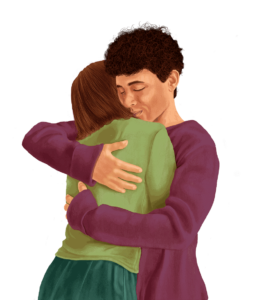Are You a Frontline Worker Struggling With COVID-19 Traumatic Isolation?
Cognitive Behavioral Therapy has been shown to help healthcare workers cope with stress, anxiety, depression and PTSD, which are on the rise due to the pandemic. Frontline workers often experience thoughts or feelings that reinforce or compound faulty beliefs, especially during this pandemic. Such beliefs can result in behaviors that can affect numerous life areas, including family, romantic relationships, work, and academics. We have a specialized program that can help you get better.
- Gain hope about how you feel
- Improve self-esteem
- Relax and reduce stress
- Think clearly with less anxiety
- Lessen mental and physical pain
Get Better Today
Cognitive behavioral therapy (CBT) is a type of therapy using a psycho-social intervention that aims to improve mental health. CBT can help by changing negative thoughts that can contribute to and worsen emotional difficulties, depression, anxiety and post-traumatic stress disorder (PTSD).
For healthcare workers, in particular, Cognitive Behavioral Therapy has shown promising results in alleviating stress and depression levels.
The end goal of cognitive behavior therapy is to help you take control of how you interpret and deal with your surroundings and the environment.
How it Works
We understand what you are going through. This pandemic has been incredibly taxing on everyone’s mental health. CBT is used to help treat a variety of potential issues related to such traumatic experiences. It’s a very effective, evidence based therapy which can rapidly help identify and deal with very specific challenges a patient may be facing.
It often requires less sessions than other types of therapy and is done in a structured way. Cognitive Behavioral Therapy works with the idea that our thoughts, not external events, are actually the cause of our feelings and behaviors. This means that we have a lot more control over those thoughts and we can change them using CBT techniques.
CONTACT US TODAY
Benefits of CBT
- Helps to cope with medical illnesses
- Helps with managing lingering physical issues
- Helps with with loss or grief
- Helps overcome emotional trauma related to abuse or violence
- Techniques can be used for coping with current and future stress
- Can be used if medications aren’t the best option
- Helps to prevent mental illness relapses
- Helps to resolve relationship issues





